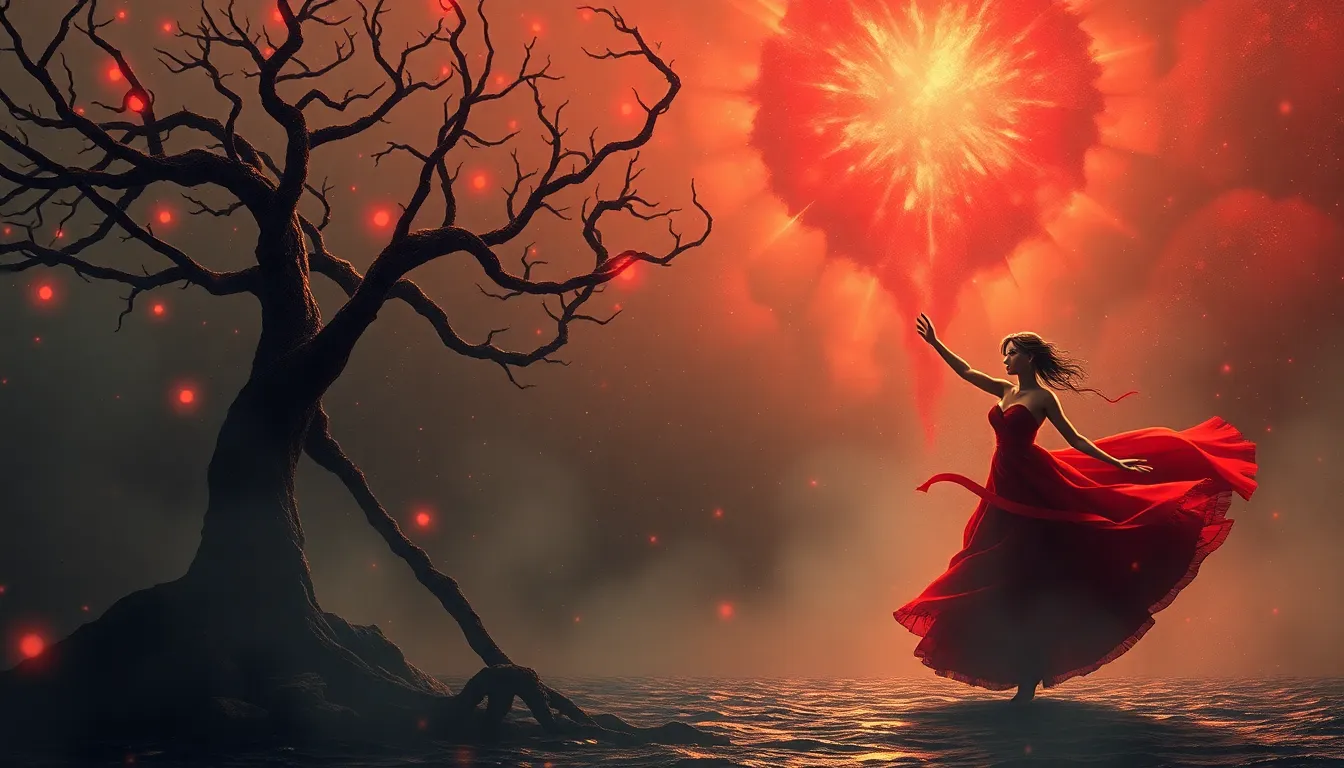Introduction: The Significance of Creation Myths
Throughout the vast tapestry of human civilization, creation myths have served as the foundational narratives that shape our understanding of the origins of the universe, humanity, and our place within it. African creation myths, hailing from the diverse cultures and traditions that span the continent, hold a profound significance in shaping the spiritual and cultural identities of countless communities.
These myths transcend mere stories; they embody the collective knowledge, values, and beliefs of generations past. They provide us with insights into the ways in which ancient Africans perceived the world around them, their relationship to the divine, and the origins of their existence. As we explore the rich tapestry of African creation myths, we embark on a journey into the depths of human imagination and the very essence of what it means to be human.
Origins and Diversity: Tracing the Roots of African Creation Myths
The origins of African creation myths are as diverse as the continent itself, with each region, ethnic group, and linguistic community possessing its own unique narratives. Some myths trace their roots back to ancient animistic traditions, where spirits and ancestors were believed to inhabit the natural world. Others draw upon monotheistic concepts, influenced by the spread of Christianity and Islam across the continent.
However, despite their diverse origins, African creation myths share certain common themes and motifs. Frequently, they feature a supreme deity or creator being who brings the universe into existence through an act of speech, thought, or will. These narratives often depict the separation of sky and earth, the creation of the first humans, and the establishment of order within the cosmos.
The Role of Divine Beings: Gods and Goddesses in Creation
In African creation myths, divine beings play a central role in the genesis of the universe. These deities often possess extraordinary powers and embody specific aspects of nature or human existence. In some myths, a single supreme god, such as Olorun in Yoruba tradition or Nyame in Akan mythology, is responsible for the creation of all things.
In other narratives, multiple deities collaborate or compete in the act of creation. For instance, the Bambara myth from West Africa depicts the creators Faro and Pemba working together to mold the world, while in the Dogon myth from Mali, the god Amma sacrifices himself to bring forth existence. These divine beings often embody human qualities, such as wisdom, creativity, and compassion, and their actions serve to shape the world and its inhabitants.
Human Origins: Legends and Stories of the First People
African creation myths frequently recount the origins of humanity and the first humans. These narratives vary greatly, reflecting the unique cultural perspectives of different ethnic groups. Some myths suggest that humans were created directly by the supreme being, while others portray them as emerging from the earth, water, or other natural elements.
In many myths, the first humans are depicted as possessing extraordinary abilities or characteristics. For example, the Yoruba myth of Oduduwa portrays the progenitor as a divine figure who descended from the heavens with a handful of soil, from which he created the land. In contrast, the Zulu myth of Unkulunkulu depicts the first human as a being formed from reeds who taught his people the arts of fire and hunting.
The Ordering of the World: Creation as a Cosmic Act
African creation myths not only account for the origins of the universe and humanity but also describe the establishment of order within the cosmos. These narratives often depict the creator deity as bringing structure and harmony to a chaotic and primeval world. They explain the creation of the sun, moon, stars, and planets, as well as the separation of land, sea, and sky.
In many myths, the act of creation is portrayed as a transformative process that involves struggle, sacrifice, and the triumph of good over evil. For example, the Egyptian myth of Atum depicts the creation of the world from the watery chaos of Nun through a process of self-creation and the ordering of elements. Similarly, the Zulu myth of Unkulunkulu describes how the creator god overcame the forces of darkness and chaos to establish the world as we know it.
6. Symbolism and Meaning: Interpreting the Language of Myths
African creation myths are not merely historical accounts; they are also symbolic narratives that convey profound meanings about the nature of existence, human purpose, and the relationship between humanity and the divine. The characters, events, and imagery within these myths often serve as metaphors for abstract concepts, personal experiences, and societal values.
7. Cultural Influences: The Impact of External Beliefs
Over time, African creation myths have been influenced by various external beliefs and cultural practices. The spread of Christianity and Islam across the continent introduced new narratives and concepts that blended with existing African traditions. In some cases, these external influences led to the modification or adaptation of creation myths, while in others, they fostered a syncretic amalgamation of beliefs.
8. Contemporary Relevance: Creation Myths in Modern African Contexts
Today, African creation myths continue to hold significance in various aspects of modern African life. They are preserved through oral traditions, storytelling, and artistic expressions, serving as a source of cultural identity and inspiration. Moreover, the themes and wisdom embedded within these myths remain relevant to contemporary African societies, shaping ethical values, religious practices, and cultural norms.
9. Unresolved Questions and Ongoing Research
While African creation myths have been extensively studied, there remain numerous unresolved questions and ongoing research endeavors. Academics continue to explore the origins, variations, and meanings of these myths, utilizing interdisciplinary approaches that combine mythology, history, anthropology, and linguistics. By delving into the complexities of African creation narratives, researchers aim to deepen our understanding of the diverse cultural and spiritual heritage of the continent.
10. Conclusion: The Enduring Legacy of African Creation Myths
African creation myths, with their rich diversity, profound symbolism, and enduring relevance, stand as invaluable repositories of human imagination and wisdom. They offer us a glimpse into the origins of civilizations, the nature of existence, and the interconnectedness of all living beings. As we continue to explore and appreciate the tapestry of African creation myths, we not only gain insights into the past but also find inspiration and meaning for the present and future.
FAQ
Q: What is the significance of creation myths in African culture?
A: Creation myths play a fundamental role in shaping the spiritual, cultural, and ethical identities of African communities. They provide narratives that explain the origins of the universe, humanity, and the world around us.
Q: How many different creation myths exist in Africa?
A: There is an immense diversity of creation myths across Africa, with each region, ethnic group, and linguistic community possessing its unique narratives. The number of distinct creation myths is vast and ever-evolving.
Q: What common themes emerge in African creation myths?
A: While creation myths vary greatly, they often share certain common themes, such as the presence of a supreme deity, the separation of sky and earth, the creation of humanity, and the establishment of order within the cosmos.
Q: Are African creation myths based on historical events?
A: While creation myths can contain elements of historical or cultural experiences, they are primarily symbolic narratives that express the fundamental beliefs and values of their respective communities.
Q: How do African creation myths continue to influence modern life?
A: African creation myths remain relevant in contemporary African contexts, shaping cultural identity, ethical values, and religious practices. They are preserved through oral traditions, storytelling, and artistic expressions, inspiring and influencing individuals and communities to this day.



